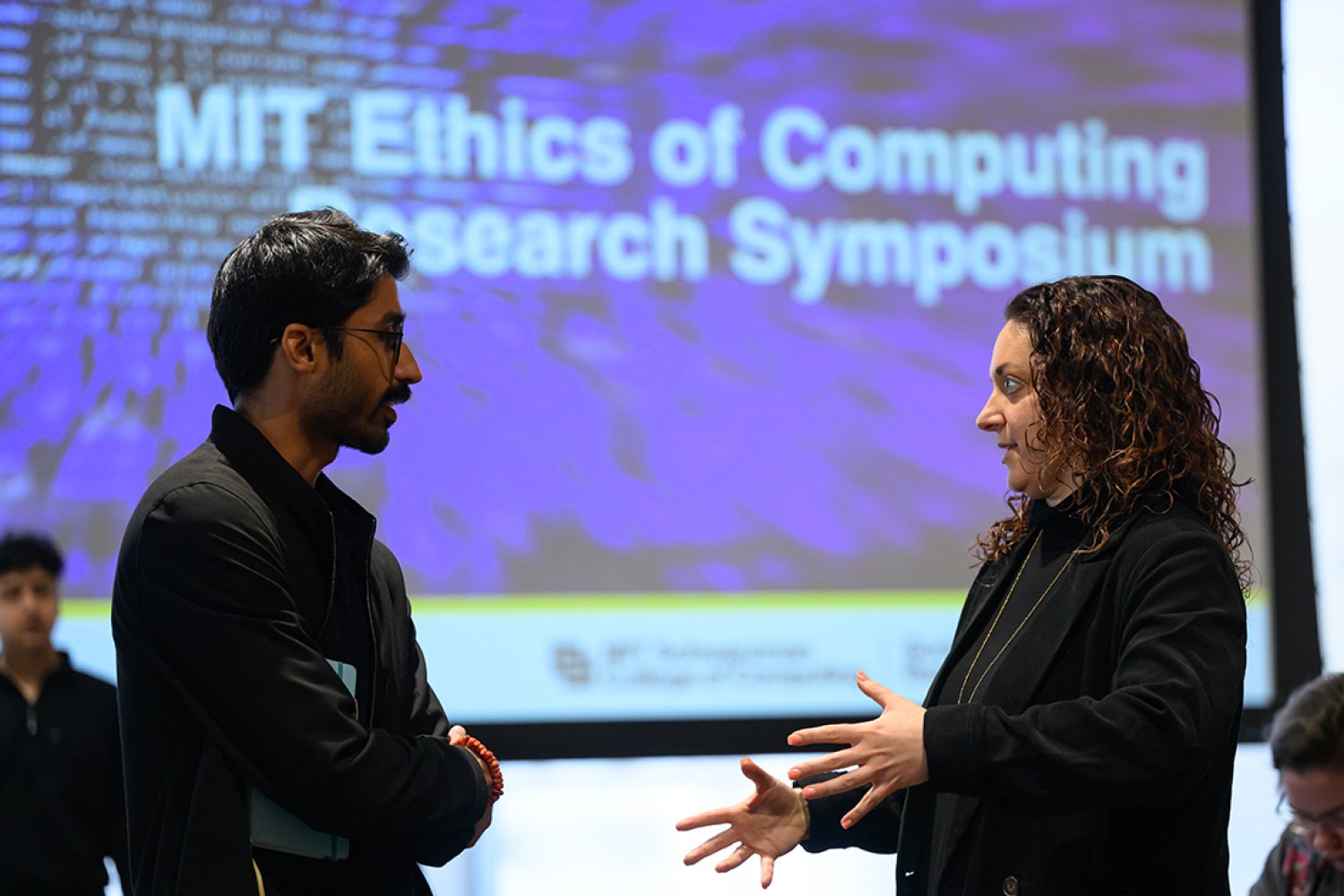Introduction to MIT’s Social and Ethical Responsibilities of Computing
In 15 TED Talk-style presentations, MIT faculty recently discussed their pioneering research that incorporates social, ethical, and technical considerations and expertise, each supported by seed grants established by the Social and Ethical Responsibilities of Computing (SERC), a cross-cutting initiative of the MIT Schwarzman College of Computing. The call for proposals last summer was met with nearly 70 applications. A committee with representatives from every MIT school and the college convened to select the winning projects that received up to $100,000 in funding.
The Purpose of SERC
“SERC is committed to driving progress at the intersection of computing, ethics, and society. The seed grants are designed to ignite bold, creative thinking around the complex challenges and possibilities in this space,” said Nikos Trichakis, co-associate dean of SERC and the J.C. Penney Professor of Management. “With the MIT Ethics of Computing Research Symposium, we felt it important to not just showcase the breadth and depth of the research that’s shaping the future of ethical computing, but to invite the community to be part of the conversation as well.”
The MIT Ethics of Computing Research Symposium
The full-day symposium on May 1 was organized around four key themes: responsible health-care technology, artificial intelligence governance and ethics, technology in society and civic engagement, and digital inclusion and social justice. Speakers delivered thought-provoking presentations on a broad range of topics, including algorithmic bias, data privacy, the social implications of artificial intelligence, and the evolving relationship between humans and machines. The event also featured a poster session, where student researchers showcased projects they worked on throughout the year as SERC Scholars.
Highlights from the Symposium
Highlights from the MIT Ethics of Computing Research Symposium in each of the theme areas included:
- Making the kidney transplant system fairer
- The ethics of AI-generated social media content
- Using AI to increase civil discourse online
- A public think tank that considers all aspects of AI
Making the Kidney Transplant System Fairer
Policies regulating the organ transplant system in the United States are made by a national committee that often takes more than six months to create, and then years to implement, a timeline that many on the waiting list simply can’t survive. Dimitris Bertsimas, vice provost for open learning, associate dean of business analytics, and Boeing Professor of Operations Research, shared his latest work in analytics for fair and efficient kidney transplant allocation. Bertsimas’ new algorithm examines criteria like geographic location, mortality, and age in just 14 seconds, a monumental change from the usual six hours.
The Ethics of AI-Generated Social Media Content
As AI-generated content becomes more prevalent across social media platforms, what are the implications of disclosing (or not disclosing) that any part of a post was created by AI? Adam Berinsky, Mitsui Professor of Political Science, and Gabrielle Péloquin-Skulski, PhD student in the Department of Political Science, explored this question in a session that examined recent studies on the impact of various labels on AI-generated content.
Using AI to Increase Civil Discourse Online
“Our research aims to address how people increasingly want to have a say in the organizations and communities they belong to,” Lily Tsai explained in a session on experiments in generative AI and the future of digital democracy. Tsai, Ford Professor of Political Science and director of the MIT Governance Lab, is conducting ongoing research with Alex Pentland, Toshiba Professor of Media Arts and Science, and a larger team.
A Public Think Tank that Considers All Aspects of AI
When Catherine D’Ignazio, associate professor of urban science and planning, and Nikko Stevens, postdoc at the Data + Feminism Lab at MIT, initially submitted their funding proposal, they weren’t intending to develop a think tank, but a framework — one that articulated how artificial intelligence and machine learning work could integrate community methods and utilize participatory design. In the end, they created Liberatory AI, which they describe as a “rolling public think tank about all aspects of AI.”
Conclusion
The MIT Ethics of Computing Research Symposium provided a platform for innovative research and discussions on the social and ethical responsibilities of computing. The presentations and projects showcased the breadth and depth of research in this field, highlighting the importance of considering the complex challenges and possibilities at the intersection of computing, ethics, and society.
FAQs
- Q: What is the Social and Ethical Responsibilities of Computing (SERC) initiative?
A: SERC is a cross-cutting initiative of the MIT Schwarzman College of Computing that aims to drive progress at the intersection of computing, ethics, and society. - Q: What were the key themes of the MIT Ethics of Computing Research Symposium?
A: The symposium was organized around four key themes: responsible health-care technology, artificial intelligence governance and ethics, technology in society and civic engagement, and digital inclusion and social justice. - Q: What is Liberatory AI?
A: Liberatory AI is a “rolling public think tank about all aspects of AI” that aims to integrate community methods and utilize participatory design in artificial intelligence and machine learning work. - Q: How can I learn more about the research presented at the symposium?
A: Many of the presentations are available to watch on YouTube, and more information about the projects and research can be found on the MIT website.











